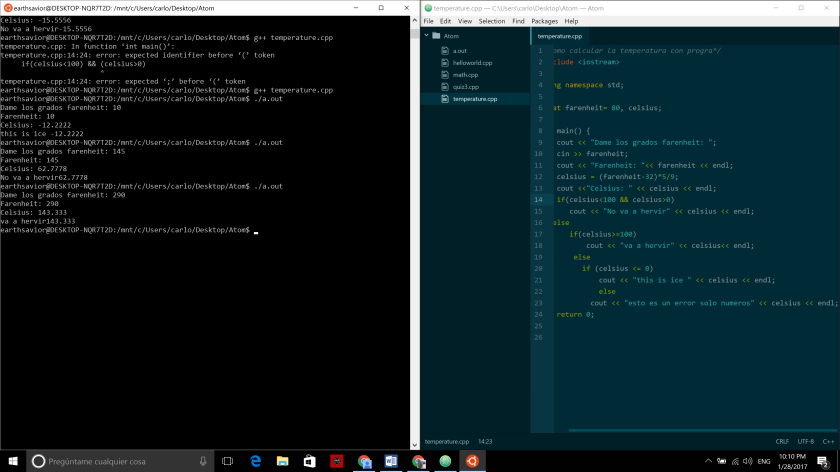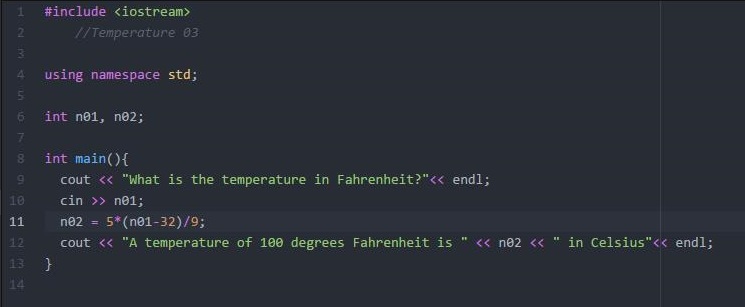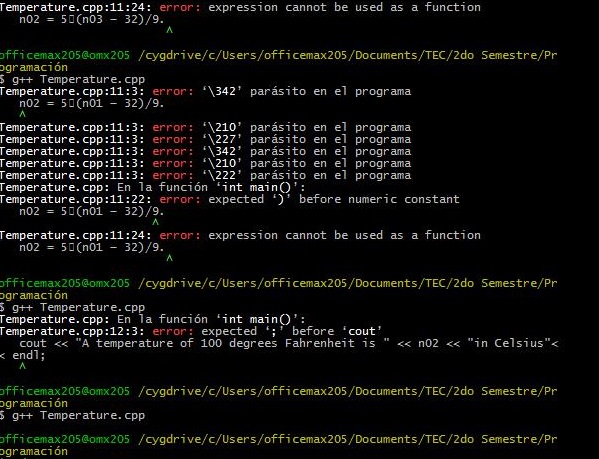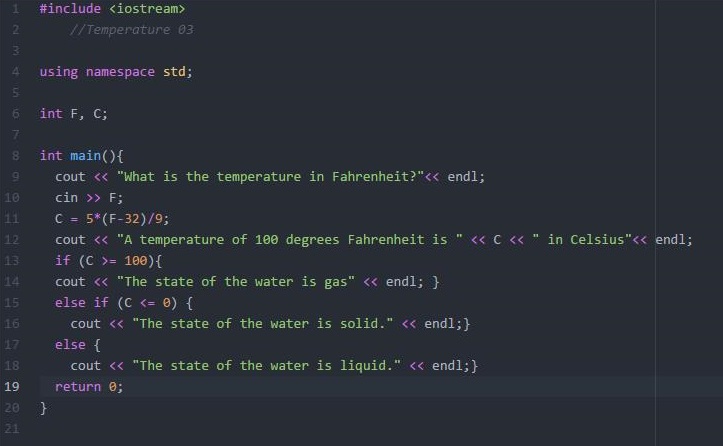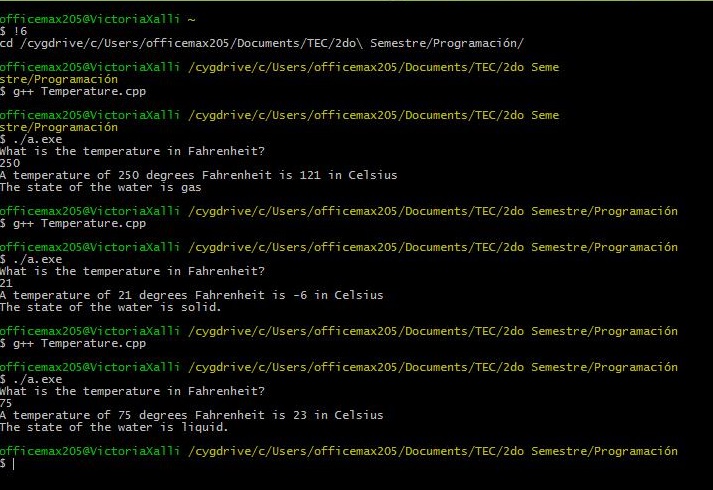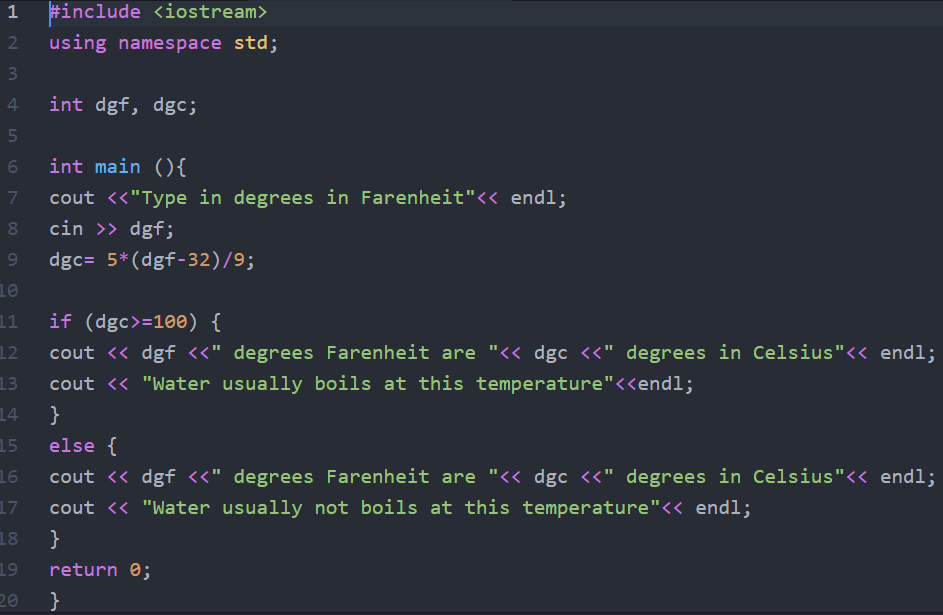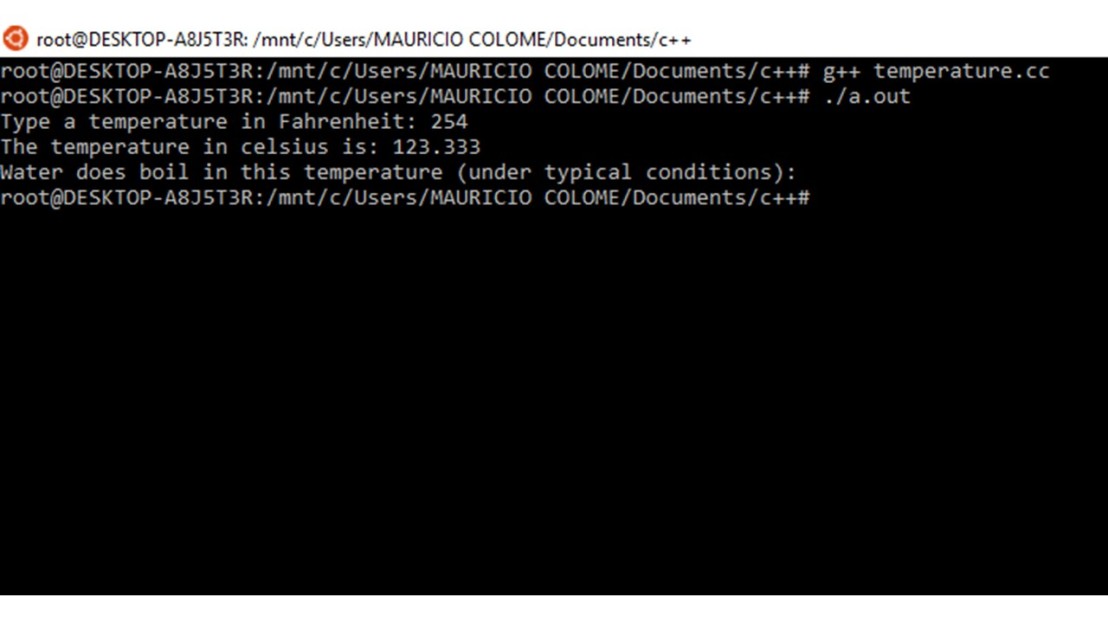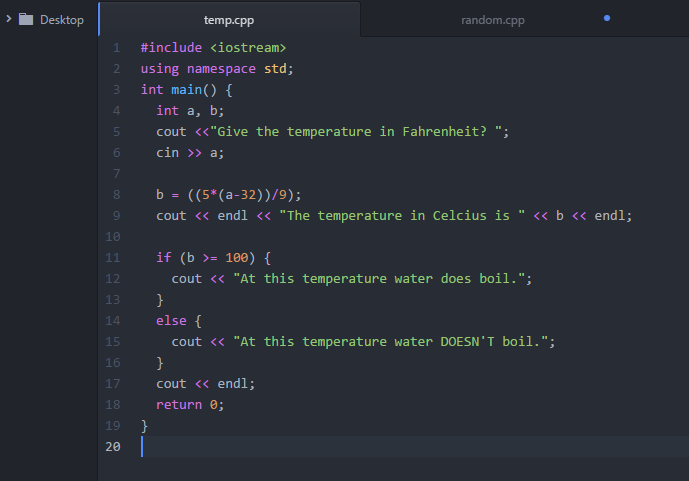--Originally published at Solving Problems with Programming
Link of the picture: link of the picture
So in this fifth class that I had on last Monday we started how to make a program with conditions in C++.#Mastery10
What I did for this numeric program is solving the problem to the user by writing a program that will prompt the user for a temperature in Fahrenheit and then convert it to Celsius with the formula C = 5 ∗ (F-32)/9.
After that I modified the program to state whether or not water would boil at the temperature given.
The following photograph shows the solution to this problem:
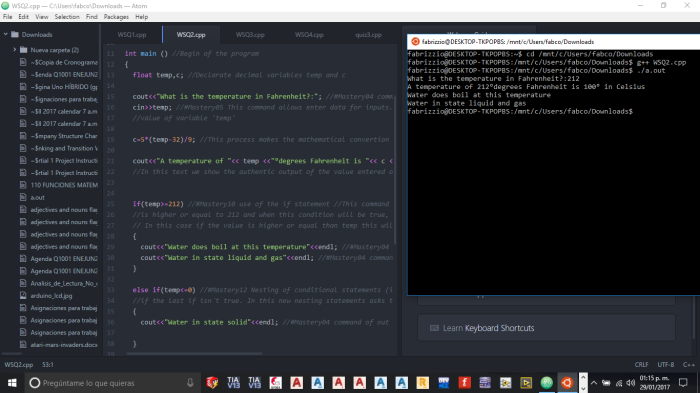
Picture of Author
So at first I wrote the same structure of the program just did the same as what i did in Hello World: Second Class, Second Blog (Blog of the second class 12/01/17) and Hello World.cpp and #WSQ01 Post Fun with Numbers 16/01/17 and WSQ1.cpp where i explained the application of the #MasteryTopic01 that it is for comments that could be very useful when debugging and #MasteryTopic04 that is basic output for data.
What i first put in the code was the library <iostream> to call all the fuctions of inputs and outputs of data in languague C++ #MasteryTopic06 Calling Functions and #MasteryTopic08 Importing and using libraries.
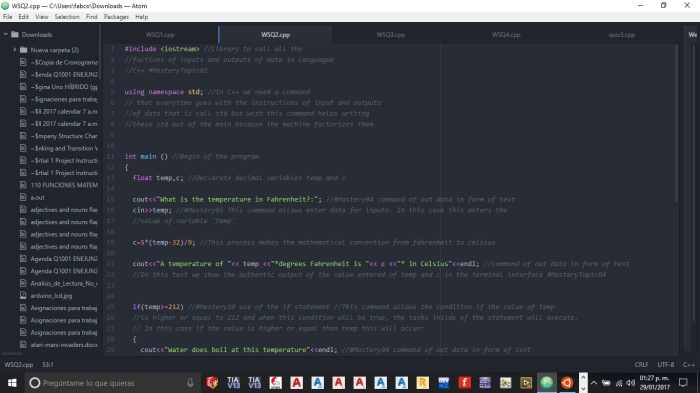
Then i had to write a command that everytime goes with the instructions of input and outputs of data that is call std but with this command helps writing these std out of the main because the machine factorizes them.
Next I initialize the begin of my program int main().
After that i had to declarate just one basic type of variable in decimal value for using in the math process of C = 5 ∗ (F-32)/9. #Mastery03 #MasteryTopic03 because the program will show the value in a float way in celsius degrees.
Next



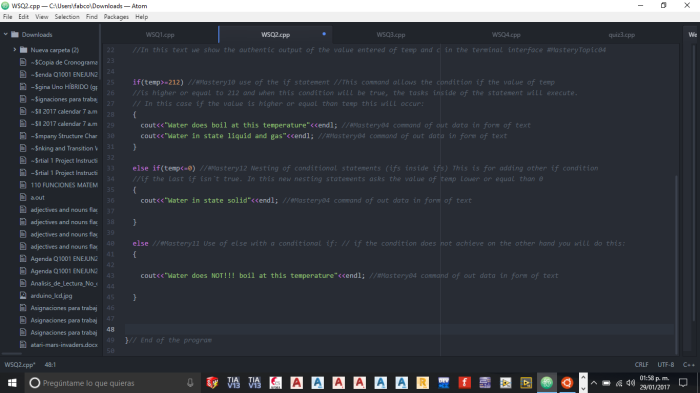
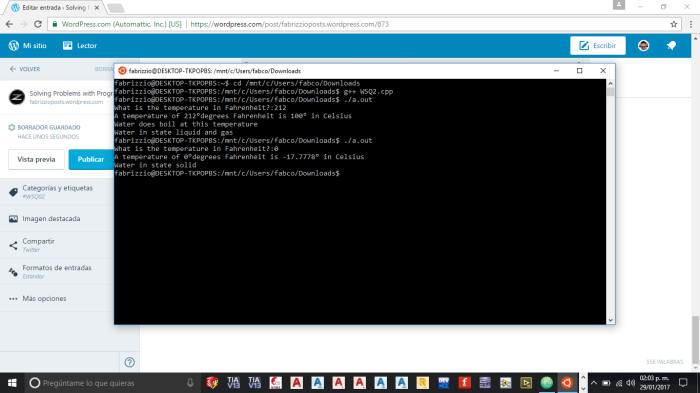

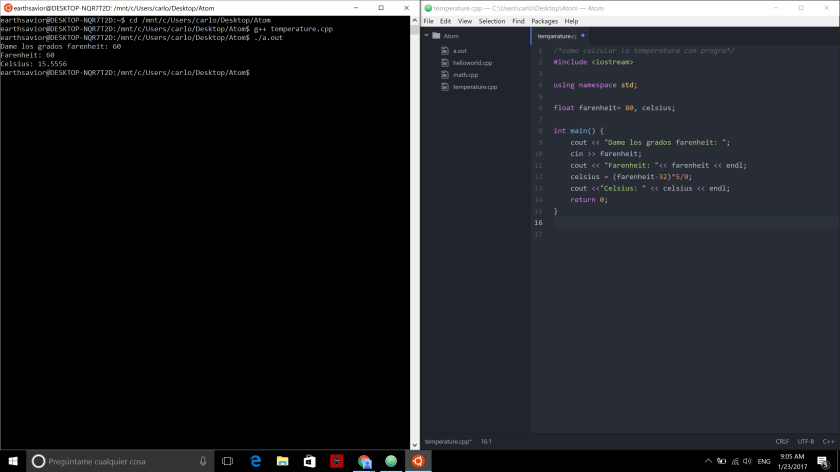 Well, this second code started With some programmin it was really easy but it started to ask for some if and else and that was more difficult because I could not remember well so I read the book and I finish the code.
Well, this second code started With some programmin it was really easy but it started to ask for some if and else and that was more difficult because I could not remember well so I read the book and I finish the code.